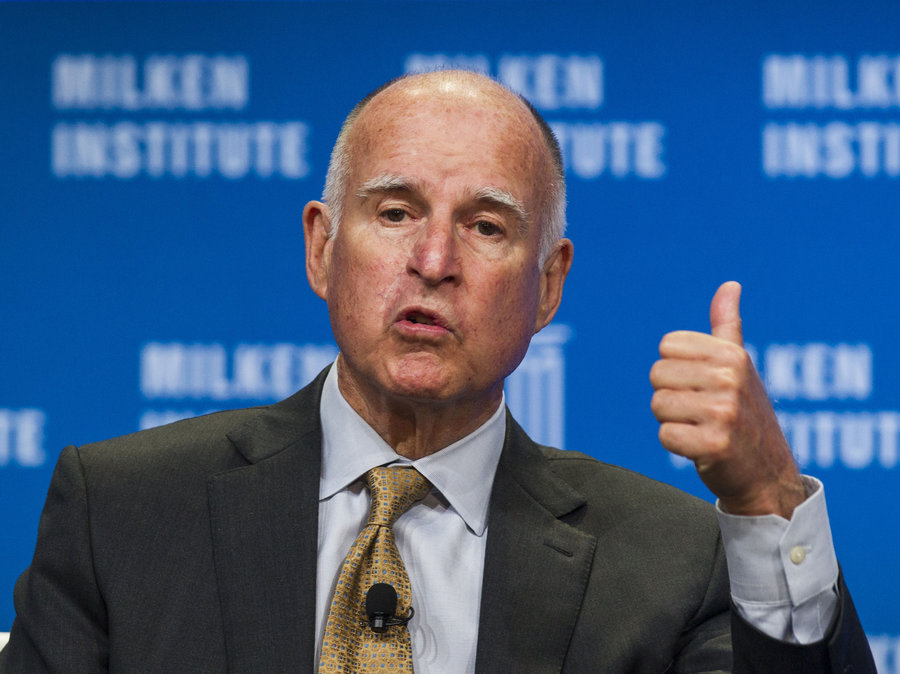Governor Jerry Brown signed legislation which automatically registers Californians to vote when they obtain or renew their driver’s licenses or state ID cards.
California followed Oregon which passed the same law in March. According to California Secretary of State Alex Padilla, the goal of the bill, known as the Motor Voter Act, was to drive more Californians to the polls.
“Citizens should not be required to opt-in to their fundamental right to vote,” Padilla said in a statement. “We do not have to opt-in to other rights, such as free speech or due process. The right to vote should be no different.”
While California and Oregon have moved towards making voting registration and voting rights more accessible, other states have made moves to suppress voting rights through measures such as voter ID laws and the elimination or restriction of early voting.
Voter ID laws, currently enforced in 31 states, disproportionately impact younger voters, low-income voters, and people of color. A 2014 study by the University of Southern California found strong evidence that “discriminatory intent underlies legislative support for voter identification laws.”
Similarly, in a unanimous vote from the Texas US Court of Appeals for the 5th Circuit, the court held that the state’s strict 2011 voter ID laws violated the Voting Rights Act. The court cited how the laws unjustly impacted racial minorities, most notably Hispanic and Black registered voters.
These findings, however, have done little to deter discriminatory voter suppression tactics. This month, Alabama plans to close 31 driver’s license offices, most of which are located in rural and low-income areas. This action disproportionately impacts communities of color by making it harder for voters to obtain the most common form of ID used to vote.
During a panel on voting rights, Rep. Terri Sewell (D-AL) noted how this action negatively impacts Alabama counties with the largest registered Black voting populations.
In addition to enacting voter ID laws, voting suppression supporters are also eliminating and restricting early voting. According to the American Civil Liberties Union, eliminating or cutting down on early voting leads to fewer opportunities to vote and more congestion on Election Day. Long lines at polling places discourage voters and put unnecessary hardships on citizens who travel long distances or use public transportation to get to their nearest polling place.
During the 2012 election, North Carolina had a 17-day early voting period. Since then, the state has removed a week of early voting, a period during which nearly 900,000 voters (primarily Black voters) cast their ballot during the 2012 election.
In an analysis conducted by Ohio State University professor Theodore Allen, Allen found that approximately 201,000 Florida voters did not cast ballots on the 2012 Election Day due to cuts in early voting. Long lines, he found, adversely affected counties with high Hispanic populations.
These discriminatory tactics have prompted civil rights and voting rights advocates to take action.
In March, groups from Fisk University and Tennessee State University filed a lawsuit against the state alleging that the exclusion of student IDs as an acceptable voter ID violates the 26th Amendment.
And in a letter to Alabama, the NAACP Legal Defense and Education Fund found the states’ decision to close 31 DMVs as “most likely” in violation of the Voting Rights Act and may require “immediate legal action” against the state.
California’s move to automatically register voters is a monumental step for voting rights during a time when voting rights are being threatened across the nation.
California has one of the lowest voting participation rates in the country. At last year’s midterm elections, only 42% of California voters came out, a record low. Currently there are 6.6 million Californians eligible to vote; however, they are not registered yet.
Supporters of the California New Voter Motor Act hope the passage of the bill will change these numbers and produce more opportunities for young voters, voters of color, and voters of lower socio-economic statuses to exercise their constitutional right to vote.
California’s new law is schedule to go into effect January 2016.












